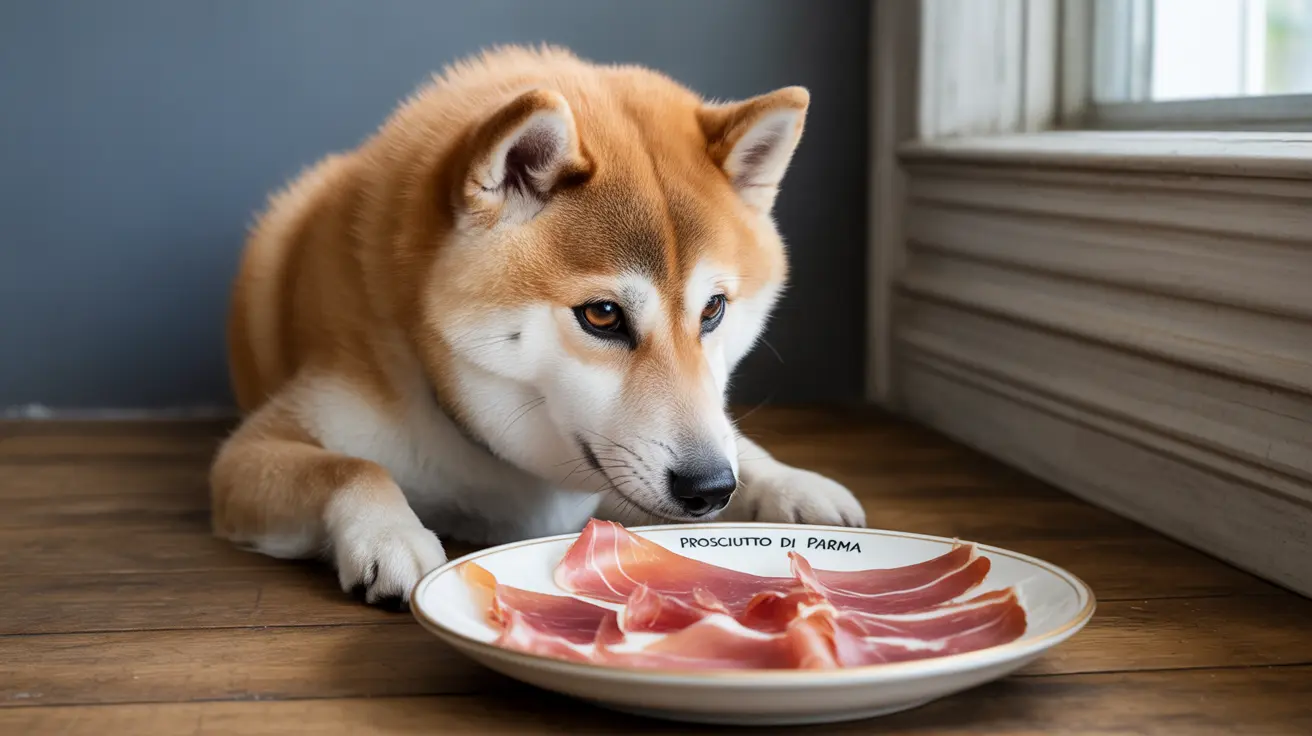As pet owners increasingly share their food with their furry friends, questions about human delicacies like prosciutto have become common. While this Italian dry-cured ham might be a delectable treat for humans, it poses significant health risks for our canine companions.
Understanding why prosciutto isn't suitable for dogs is crucial for maintaining your pet's health and well-being. Let's explore the risks, potential consequences, and safer alternatives for your four-legged friend.
Understanding Prosciutto and Its Components
Prosciutto is a premium Italian ham that undergoes an extensive curing process involving salt, time, and sometimes additional seasonings. While the resulting product is prized by food enthusiasts, several aspects make it particularly dangerous for dogs:
- Extremely high sodium content
- Concentrated fat levels
- Preservatives like nitrates and nitrites
- Potential seasonings and spices
- Raw or minimally processed meat
Health Risks of Feeding Prosciutto to Dogs
Sodium-Related Dangers
The excessive salt content in prosciutto can lead to severe health issues in dogs, including:
- Sodium poisoning
- Severe dehydration
- Increased blood pressure
- Kidney strain
- Neurological problems
Fat Content Concerns
The high fat concentration in prosciutto can trigger several serious conditions:
- Acute pancreatitis
- Obesity
- Digestive upset
- Cardiovascular issues
Immediate Signs of Prosciutto-Related Problems
Watch for these symptoms if your dog has consumed prosciutto:
- Excessive thirst and urination
- Vomiting or diarrhea
- Lethargy or weakness
- Abdominal pain
- Unusual behavior or disorientation
What to Do If Your Dog Eats Prosciutto
If your dog has consumed prosciutto, take these immediate steps:
- Assess the amount eaten
- Monitor for concerning symptoms
- Ensure fresh water is available
- Contact your veterinarian if symptoms appear
- Keep a close eye on your pet for 24-48 hours
Safe Meat Alternatives for Dogs
Instead of prosciutto, consider these healthy protein options:
- Plain, cooked chicken breast
- Lean, unseasoned turkey
- Cooked fish (without bones)
- Commercial dog treats designed for canine nutrition
- Lean beef (cooked, unseasoned)
Frequently Asked Questions
Can dogs safely eat prosciutto, or is it harmful to their health?
No, dogs cannot safely eat prosciutto. The high salt content, preservatives, and fat make it potentially harmful to their health, leading to various complications from mild digestive issues to severe conditions like pancreatitis.
What are the main health risks for dogs eating prosciutto?
The main health risks include sodium poisoning, dehydration, pancreatitis, obesity, and complications from preservatives like nitrates and nitrites. Additional risks come from possible toxic seasonings and raw meat contamination.
How much salt and fat in prosciutto affect a dog's well-being?
The high salt content can cause immediate problems like excessive thirst and urination, while potentially leading to sodium poisoning. The concentrated fat can trigger pancreatitis and contribute to long-term obesity and heart issues.
What should I do if my dog accidentally eats prosciutto?
Monitor your dog closely for signs of distress, ensure they have access to fresh water, and contact your veterinarian if you notice concerning symptoms like vomiting, diarrhea, or unusual behavior.
Are there safer meat treat alternatives to prosciutto for dogs?
Yes, there are many safer alternatives including plain cooked chicken, turkey, or lean beef without seasonings. Commercial dog treats specifically formulated for canine nutrition are also excellent options.
Conclusion
While prosciutto might be tempting to share with your dog, the risks far outweigh any potential enjoyment. Stick to dog-specific treats and plain, cooked meats to keep your furry friend healthy and happy. Remember, what's delicious for humans isn't always safe for our canine companions.






